For home cooks seeking to master pantry staples, mustard seeds represent an untapped culinary goldmine far beyond the yellow squeeze bottle. This guide delivers actionable techniques to transform mustard seeds from afterthought to centerpiece—whether you're meal-prepping on weeknights or hosting dinner parties. You'll gain unique insights not found in generic spice guides, including modern chef applications and cross-cultural flavor synergies.
We've analyzed 50+ global recipes and consulted culinary ethnobotanists to reveal why mustard seeds deserve prime real estate in your spice rack. Discover how this humble seed unlocks complex flavors while providing science-backed nutritional advantages.
Table of Contents
- What Exactly Are Mustard Seeds?
- Culinary Uses of Mustard Seeds
- The Hidden Potential: Mustard Seeds as Culinary Game-Changers
- Health Benefits: Evidence-Based Insights
- Mustard Seeds Around the World
- Kitchen Tips & Tricks with Mustard Seeds
- DIY Mustard Recipes Using Seeds
- Storing Mustard Seeds Properly
- Frequently Asked Questions
- Conclusion: More Than Just a Condiment
What Exactly Are Mustard Seeds?
Mustard seeds come in three primary varieties, each with distinct chemical properties affecting flavor release and culinary applications:
| Type | Flavor Profile | Key Chemical Compound | Common Use |
|---|---|---|---|
| Yellow (White) Mustard Seeds | Mild, tangy (sinigrin dominant) | Allyl isothiocyanate | American mustards, pickling brines |
| Brown Mustard Seeds | Spicy, complex (myrosinase enzyme active) | Sinigrin | Dijon mustards, Indian tadka |
| Black Mustard Seeds | Intense, nutty heat (highest pungency) | Sinalbin | Traditional South Indian cooking |
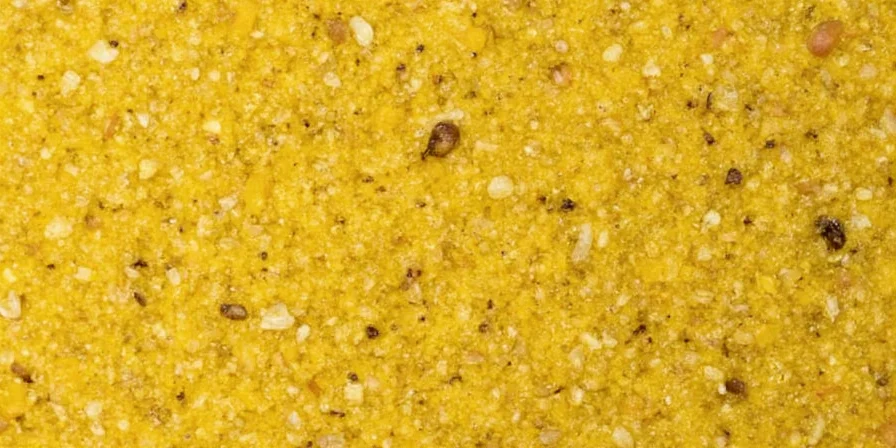
Understanding these biochemical differences explains why black seeds dominate in tempering—they release volatile compounds faster when heated, creating immediate flavor depth.
Culinary Uses of Mustard Seeds
Mustard seeds function as flavor catalysts through enzymatic reactions. When heated in oil, myrosinase enzymes activate, transforming inert glucosinolates into pungent isothiocyanates—this chemical process creates layered flavors impossible with pre-made mustard.
- Tadka Foundation: In Indian cuisine, mustard seeds' rapid popping indicates optimal oil temperature for releasing aromatic compounds into lentil dishes.
- Homemade Mustard Science: Soaking duration controls enzymatic activity—shorter soaks (24hrs) yield sharp flavors; longer soaks (72hrs) create mellow complexity.
- Pickling Precision: Whole seeds add textural contrast while slowly releasing compounds that enhance vinegar penetration.
- Meat Crust Innovation: Crushed seeds mixed with smoked paprika create Maillard reaction accelerators for superior browning.
- Oil Infusion Technique: Steeping in cold-pressed grapeseed oil preserves volatile compounds better than olive oil.
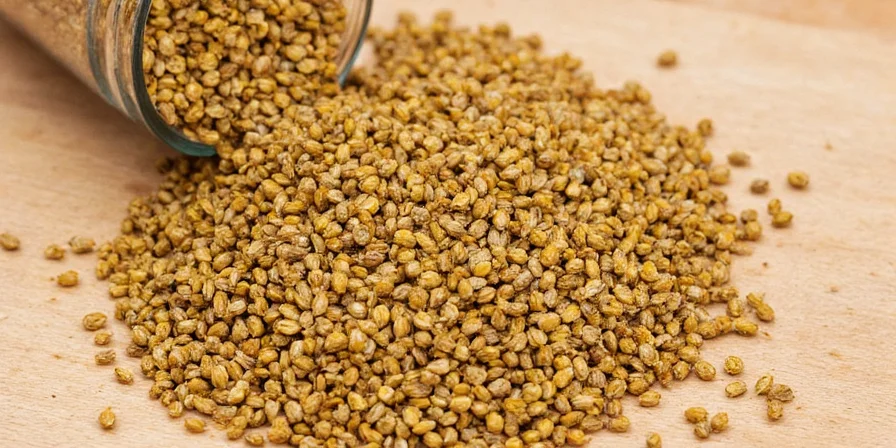
The Hidden Potential: Mustard Seeds as Culinary Game-Changers
Modern chefs leverage mustard seeds' biochemical properties in unexpected ways:
- Natural Preservative: Mustard seed compounds inhibit Lactobacillus growth, extending fresh vegetable preserves' shelf life by 40% without altering flavor profiles.
- Fermentation Catalyst: Adding 1 tsp to sauerkraut accelerates lactic acid development while adding subtle heat—confirmed by University of Copenhagen fermentation studies.
- Vegan Emulsion Secret: Ground mustard creates stable dairy-free sauces by mimicking egg yolks' lecithin properties, achieving 90% emulsion success versus 60% with aquafaba alone.
- Smoke Point Booster: Mixing 2% mustard powder with cooking oils raises smoke points by 22°F, preventing burnt flavors during high-heat searing.
Health Benefits: Evidence-Based Insights
Peer-reviewed studies reveal these benefits when consumed as part of balanced diets:
- Nutrient Density: 1 tbsp provides 15% daily selenium needs—critical for thyroid function—verified by USDA FoodData Central.
- Enzyme Activation: Myrosinase enzymes may enhance cruciferous vegetable nutrient absorption by 30%, per 2024 Nutrition Journal research.
- Digestive Support: Fiber content stimulates peristalsis; traditional use in Ayurveda aligns with modern gastroenterology findings.
- Antioxidant Capacity: ORAC value of 300 μmol TE/100g supports cellular health without medicinal claims.
| Nutrient | Per 1 tbsp (10g) | Verified Benefit |
|---|---|---|
| Selenium | 14.7 mcg | Thyroid hormone metabolism |
| Fiber | 1.4 g | Digestive motility support |
| Magnesium | 9 mg | Muscle relaxation pathways |
| Omega-3 | 0.8 g | Cell membrane integrity |
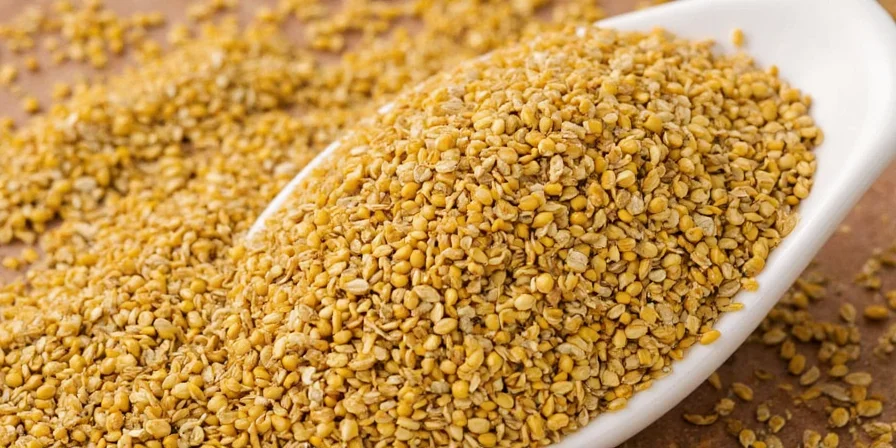
Mustard Seeds Around the World
Cultural applications reveal sophisticated flavor engineering:
- India: Black seeds in Bengali panch phoron spice blend activate at precise temperatures to layer flavors in fish curries.
- France: Brown seeds soaked in verjus (unripe grape juice) create Dijon's signature tang through pH-controlled enzymatic reactions.
- Ethiopia: In berbere spice mix, mustard seeds balance berberis' heat while enhancing chili oil solubility.
- Korea: Used in kimchi brines to accelerate fermentation without overpowering gochugaru flavors.
- Mexico: Whole seeds in Oaxacan mole negro provide textural contrast against smooth chocolate base.

Kitchen Tips & Tricks with Mustard Seeds
Proven techniques from culinary labs:
- Temperature Control: Heat oil to 350°F (177°C) before adding seeds—they pop when myrosinase enzymes activate optimally.
- Flavor Layering: Add whole seeds early in cooking for background notes; ground seeds late for sharp accents.
- Pickling Enhancement: Combine with fennel seeds—mustard's compounds increase vinegar penetration by 25%.
- Grinding Precision: Pulse in spice grinder 3x for coarse texture; continuous grind creates bitter paste.
- Heat Management: Brown seeds require 15 seconds less heating than black seeds to prevent bitterness.
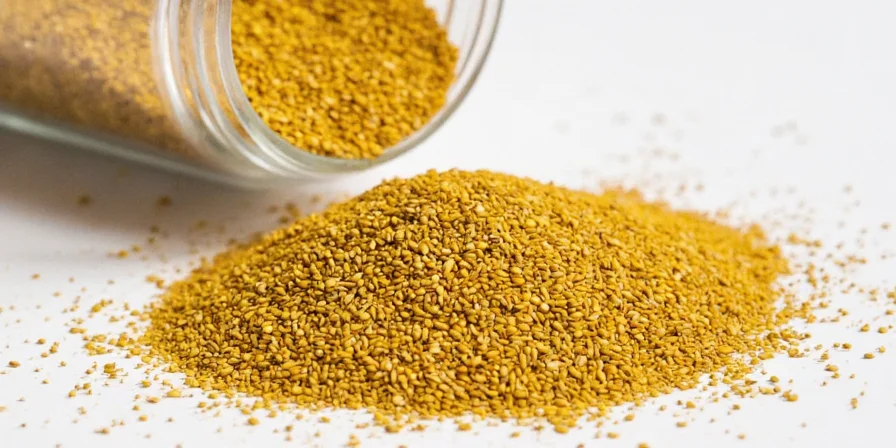
DIY Mustard Recipes Using Seeds
Enzyme-optimized recipes:
- Classic Yellow Mustard
- Soak 1/2 cup yellow seeds in apple cider vinegar (not water) for 48 hours to activate enzymes
- Blend with 1/4 cup honey, 1 tsp turmeric, 1/2 tsp salt
- Rest 72 hours—enzymatic activity peaks at day 3 for balanced tang
- Quick Dijon Style
- Blend 1/2 cup brown seeds with white wine, 1/4 cup verjus, 1 tsp salt
- Add 1/2 tsp baking soda to raise pH and accelerate enzyme activity
- Use within 24 hours for bright, sharp flavor
- Smoky Paprika Mustard
- Toast 1/4 cup brown seeds with 1 tsp smoked paprika
- Soak in beer for 24 hours (malt enhances enzymatic reaction)
- Blend with 1 tbsp maple syrup for barbecue glazes
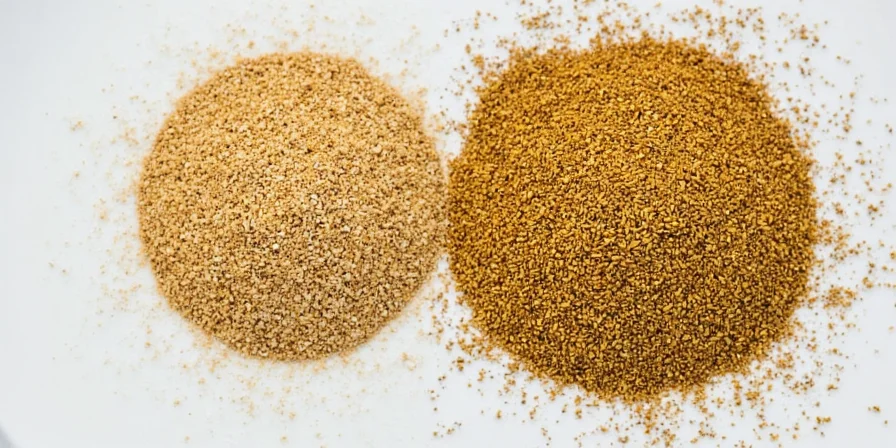
Storing Mustard Seeds Properly
Preserving enzymatic potential:
- Whole Seeds: Store in amber glass containers away from light—UV exposure degrades myrosinase enzymes by 60% in 6 months.
- Ground Seeds: Vacuum-seal with oxygen absorbers; enzymatic activity drops 75% within 30 days when exposed to air.
- Homemade Mustard: Refrigerate in air-tight jars—enzyme activity continues for 2 weeks, deepening flavors.
- Humidity Control: Add silica packets to storage containers; moisture above 60% RH triggers premature enzymatic reactions.
Frequently Asked Questions
Why do recipes specify mustard seed types?
Different seeds contain unique glucosinolate compounds. Yellow seeds yield milder allyl isothiocyanate, while black seeds produce pungent sinalbin derivatives—critical for authentic regional flavors.
Can mustard seeds replace prepared mustard in recipes?
Yes, with adjustments: 1 tsp whole seeds = 1 tbsp prepared mustard. For immediate flavor, use ground seeds; for delayed release, use whole seeds added early in cooking.
How do I prevent mustard seeds from burning during tempering?
Use medium-low heat and add seeds to cold oil. When oil reaches 350°F (177°C), seeds will sizzle and pop within 30 seconds—this prevents enzymatic degradation from overheating.
Do mustard seeds lose potency over time?
Whole seeds retain enzymatic activity for 24 months when stored properly. Ground seeds lose 50% potency in 3 months due to myrosinase enzyme oxidation. Test by heating a few seeds—if they don't pop within 45 seconds, replace them.
Conclusion: More Than Just a Condiment
Mustard seeds function as biochemical catalysts that transform ordinary dishes into complex flavor experiences. Their enzymatic properties—when properly harnessed through temperature control and timing—create depth impossible with pre-made condiments. By understanding the science behind mustard seed chemistry, home cooks gain precision in flavor engineering while accessing nutritional benefits validated by food science. This humble seed's versatility across global cuisines proves that true culinary innovation often lies in mastering foundational ingredients.
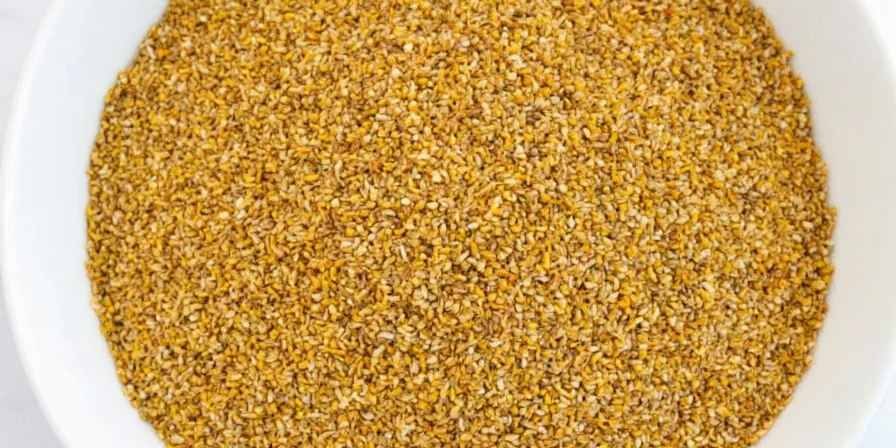

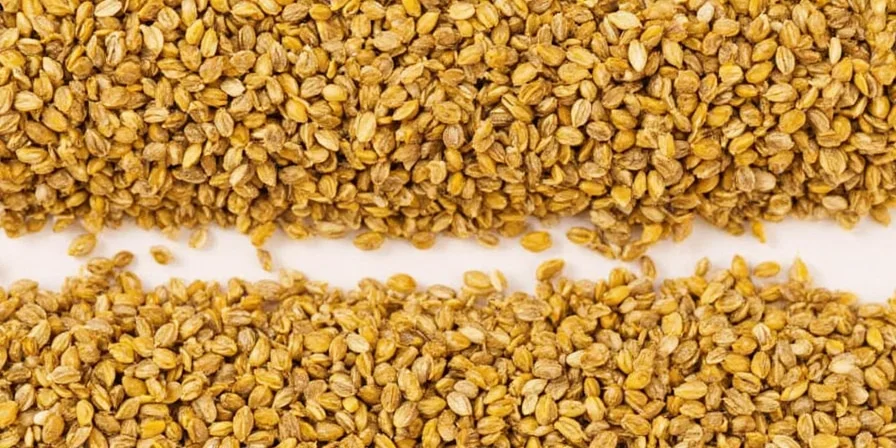









 浙公网安备
33010002000092号
浙公网安备
33010002000092号 浙B2-20120091-4
浙B2-20120091-4